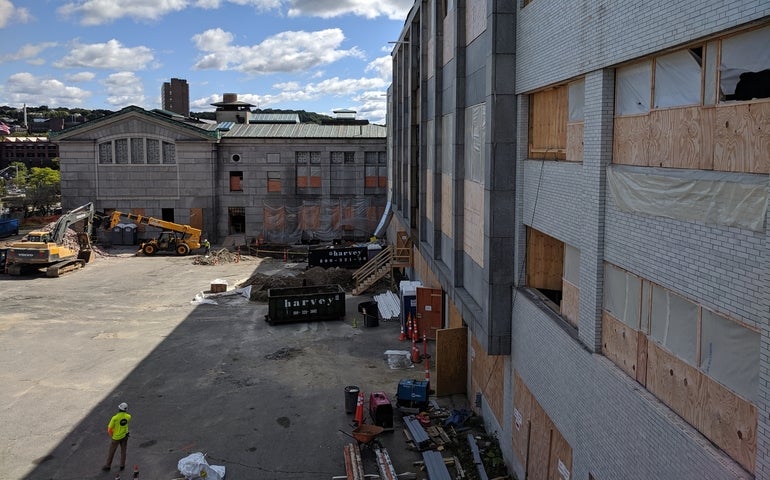Contaminated sites, known as brownfields, have been redeveloped into the Linwood Mill in Northbridge and Crompton Place in Worcester, as well as Polar Park, the Worcester ballpark for which construction is just beginning.
Now, the Central Massachusetts Regional Planning Commission is looking to give a boost to similar projects on the horizon.
The commission is seeking applications from interested parties looking for help conducting environmental site assessments across the area. The commission will direct environmental professionals it works with to assess sites on behalf of local governments, non-profits, businesses or developers.
Major projects have been developed on brownfields across the area, including the former Worcester courthouse renovation into a new apartment development, the Worcester Regional Transit Authority’s new operations building on Quinsigamond Avenue in Worcester, and the Southbridge Hotel & Conference Center in Southbridge. Public funding has also gone toward creating South Worcester Industrial Park, Fidelity Bank Worcester Ice Center and Gateway Park in Worcester, and Whitin Mill in Northbridge.
But plenty more are out there with potential: More than 4,600 contaminated or potentially contaminated sites in the Central Massachusetts Regional Planning Commission’s 40-municipality territory in central and southern Worcester County. Several hundred still require additional assessment and/or cleanup work before they can be safely returned to productive use, according to the commission.
“CMRPC’s site assessment program can help push that underutilized real estate – often located in historic neighborhood and town centers – back into productive use by giving private, nonprofit and municipal developers the environmental information they need to make decisions,” said Andrew Loew, the commission’s project manager. “In the long run we expect to see job creation, tax base expansion, affordable housing, and public and environmental health facilitated through the program.”
Funding for the commission’s assessment program has been given through a $300,000 grant from the U.S. Environmental Protection Agency.

